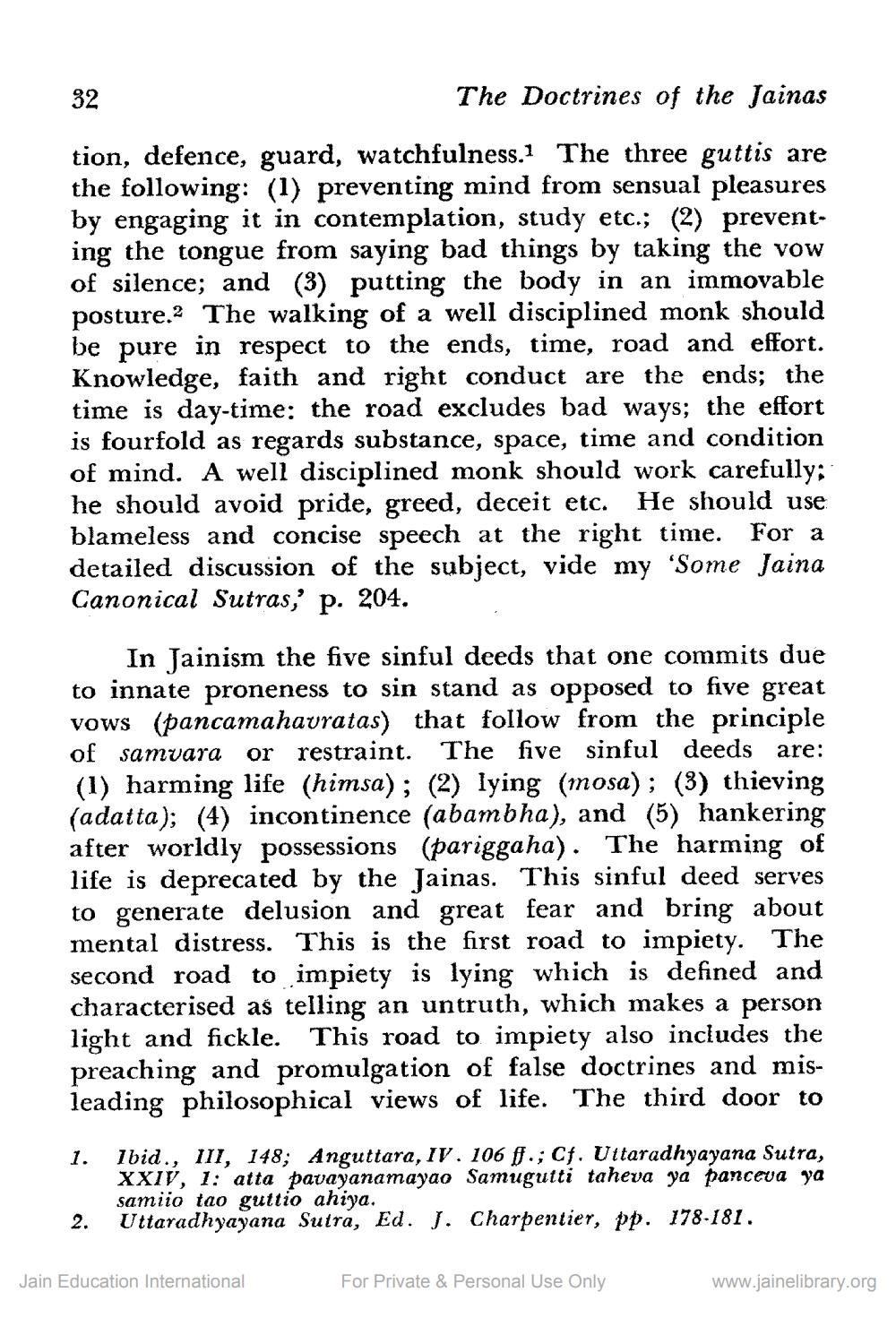________________
32
The Doctrines of the Jainas
tion, defence, guard, watchfulness. The three guttis are the following: (1) preventing mind from sensual pleasures by engaging it in contemplation, study etc.; (2) preventing the tongue from saying bad things by taking the vow of silence; and (3) putting the body in an immovable posture. The walking of a well disciplined monk should be pure in respect to the ends, time, road and effort. Knowledge, faith and right conduct are the ends; the time is day-time: the road excludes bad ways; the effort is fourfold as regards substance, space, time and condition of mind. A well disciplined monk should work carefully; he should avoid pride, greed, deceit etc. He should use blameless and concise speech at the right time. For a detailed discussion of the subject, vide my 'Some Jaina Canonical Sutras, p. 204.
In Jainism the five sinful deeds that one commits due to innate proneness to sin stand as opposed to five great vows (pancamahavratas) that follow from the principle of samvara or restraint. The five sinful deeds are: (1) harming life (himsa); (2) lying (mosa); (3) thieving (adatta); (4) incontinence (abambha), and (5) hankering after worldly possessions (pariggaha). The harming of life is deprecated by the Jainas. This sinful deed serves to generate delusion and great fear and bring about mental distress. This is the first road to impiety. The second road to impiety is lying which is defined and characterised as telling an untruth, which makes a person light and fickle. This road to impiety also includes the preaching and promulgation of false doctrines and misleading philosophical views of life. The third door to
1. Ibid., III, 148; Anguttara, IV. 106 ff.; Cf. Uttaradhyayana Sutra, XXIV, 1: atta pavayanamayao Samugutti taheva ya panceva ya samiio tao guttio ahiya. Uttaradhyayana Sutra, Ed. J. Charpentier, pp. 178-181.
2.
Jain Education International
For Private & Personal Use Only
www.jainelibrary.org




